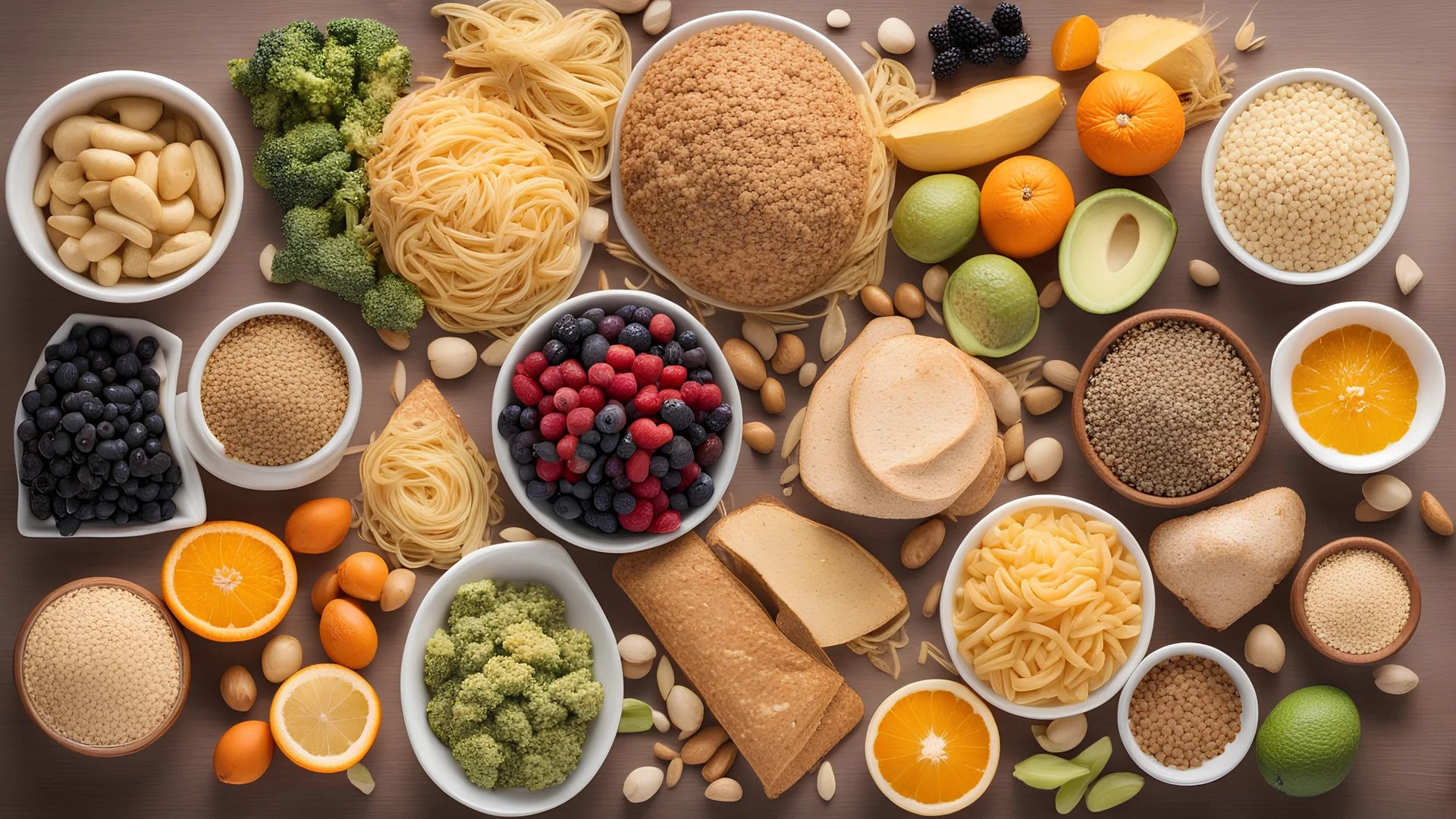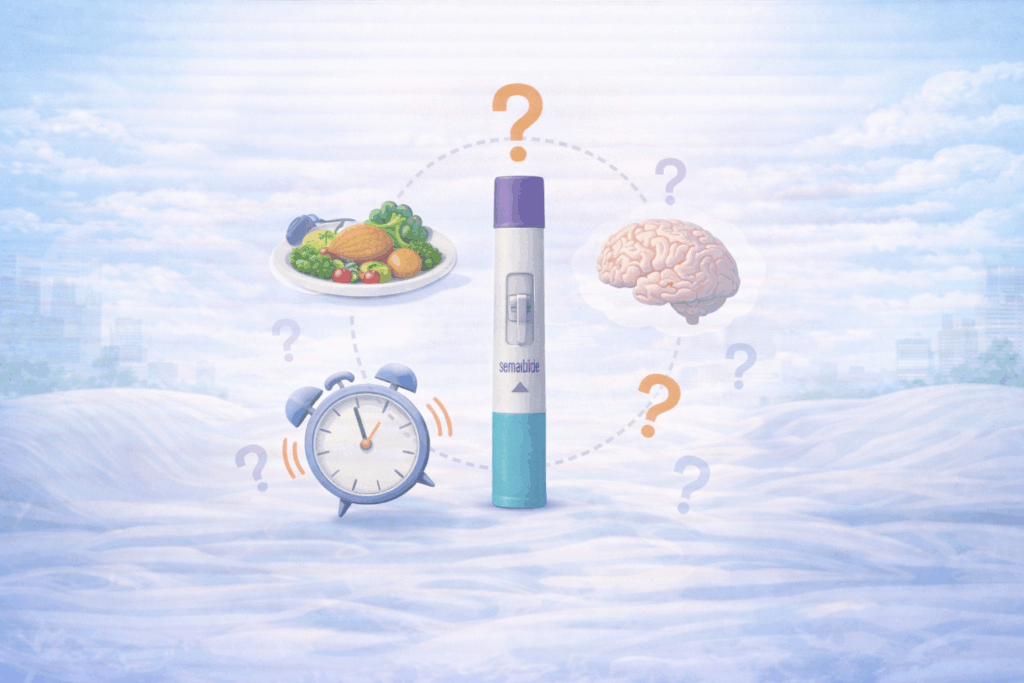Losing weight and keeping it off is a goal many of us share. It’s the kind of thing that many people seem to battle for years, yo-yoing up and down through peaks and troughs throughout their lives. But fad diets and quick fixes rarely work in the long run. The key to sustainable weight loss lies in adopting a weight loss diet plan that nourishes your body, fuels your energy levels for exercise and helps you feel your best with nutrients.
What is a healthy diet plan for weight loss?
A diet plan for weight loss doesn’t have to mean making strict restrictions or cutting out entire food groups – everything can be suitable in moderation! Instead, it’s about making healthier eating habits part of your everyday life. This involves choosing nutrient-dense foods, creating balanced meal plans and adjusting your eating patterns so that your body has the fuel it needs while gradually reducing the excess calories that result in weight gain.
A good plan includes variety – more fruits, vegetables, whole grains, and lean proteins — while allowing small indulgences like a square of dark chocolate or a serving of homemade dessert from healthy recipes that you enjoy. This balance makes it easier to adhere to the plan in the long term. If you aren’t able to enjoy what you’re eating, you’ll never be able to make the long-term changes.
The basics of a weight loss diet plan | Calories and energy balance
Weight loss fundamentally comes down to a concept of energy balance – the essentials of calories in vs. calories out.
- Calories in refer to the energy you consume through food and drink.
- Calories out refer to the energy your body uses for basic functions (metabolism) and physical activity.
To lose body weight, you need to create a calorie deficit. This means consuming fewer calories than your body burns. This might sound a little daunting, but it’s a lot more manageable than most people think. A calorie deficit doesn’t mean starving yourself, and for heavier people, it can mean relatively minor cuts at first, which are then titrated down to make the loss consistent. A sustainable weight loss diet plan focuses on foods that are filling, nourishing and provide the health benefits your body needs, while still facilitating a calorie deficit.
Why does healthy weight loss matter?
Carrying excess body weight isn’t just about getting that beach body that you’ve always wanted – it can seriously impact your health. Research links obesity to a wide variety of more severe health conditions, such as:
- Type 2 diabetes. Excess weight contributes to insulin resistance and unstable blood sugar levels, with type 2 diabetes causing plenty of complications to everyday life.
- Heart disease and heart attack. Obesity increases cholesterol and high blood pressure, straining your cardiovascular system beyond what it’s designed to handle.
- Certain cancers. Obesity is the second highest cause of cancer in the UK, increasing the risk of 13 cancers, including breast, colon and endometrial cancers.
- Joint problems. Extra weight stresses the body’s joints, causing osteoarthritis and similar uncomfortable conditions.
- Sleep apnea. This condition, which primarily affects respiration, interrupts sleep and increases cardiovascular risk.
The good news is that even a modest 5–10% reduction in body weight can cut these risks and bring meaningful health benefits.
Why sustainable diets are key for weight Loss
Sustainable diets aren’t just about short-term results; they focus on lifelong healthy eating and balance. The word ‘sustainable’ means it’s the kind of diet that you can stick with in the long term, without feeling the need to crash or fall apart.
- Avoid Yo-Yo cycles. No more patterns of quick losses followed by rapid regains.
- Nutrient-rich. Emphasise healthier food choices, such as whole grains, nuts, seeds, lean proteins, healthy fats, and legumes.
- Energy boost. A sustainable plan fuels your day, facilitating exercise and regular operations without leaving you drained.
- Planet-friendly. Using seasonal, local produce supports both your health and the environment.
By setting realistic expectations, you create eating habits you can follow for years, not weeks.
Building your weight loss diet plan
1. Prioritise whole foods
- More fruits and vegetables. Colours are your friends! Get at least five servings per day for vitamins, fibre, and fullness.
- Whole grains. Oats, brown rice, and quinoa provide slow-release energy, better than processed carbohydrates.
- Lean protein. Chicken, fish, beans, tofu, and legumes keep you full and support muscle. Higher-fat proteins like pork and steak can also benefit you in moderation.
- Healthy fats. Include unsaturated fats from sources like olive oil, avocados and nuts in moderation.
2. Limit processed foods
Cut back on ultra-processed snacks, fast food, and sugary drinks. These are typically high in calories, sugar, and unhealthy fats while offering few nutrients. The more ingredients you can’t pronounce, the more processed something is likely to be.
3. Portion control
Pay attention to the right amount of food. Use smaller plates, measure servings with cups or spoons, eat with smaller implements and listen to hunger cues.
4. Hydration
Water is essential. Aim for 6–8 glasses daily. Replace canned/bottled fizzy drinks with water, sparkling water with lemon or herbal teas to save calories.
Additional foods to support healthy eating
Adding variety can make your weight loss diet plan more enjoyable and effective.
- Greek yogurt or nonfat yogurt is high in protein and great for breakfast or snacks. A typical serving is about 1 cup.
- Cottage cheese is another high-protein, low-calorie option for snacks or light meals, often used similarly to yoghurt.
- Dark chocolate in small amounts can curb sweet cravings without derailing your plan, while also containing some antioxidants.
It’s also important to make meals from healthy, diverse recipes, such as colourful salads, grain bowls and other one-pot tasties. These foods not only aid in weight management but also help regulate blood sugar and provide long-term health benefits.
Clinical evidence
A wealth of research supports the use of sustainable diet plans for weight loss.
- The PREDIMED Study showed that a Mediterranean diet lowered risk of cardiovascular disease.
- The Diabetes Prevention Program has proven that lifestyle changes like healthy eating and exercise outperformed medication in preventing diabetes.
- Portion control studies often demonstrate that managing serving sizes encourages gradual, sustainable weight loss.
Calorie counting for weight loss
While healthier food choices are vital, understanding calorie intake helps keep your plan on track. Calorie counting can sound quite restrictive, but having strict goals can mean a more stringent approach. The NHS suggests cutting around 600 kcal/day for healthy weight loss.
The calorie deficit principle
Weight loss comes from burning more than you consume. For example:
- Men: 2,500 average – 600 deficit = 1,900 kcal.
- Women: 2,000 average – 600 deficit = 1,400 kcal.
This gradual approach prevents rebound weight gain and maintains energy. Calculating your maintenance calories is a great place to start.
Track calories effectively
- Keep a food diary (apps or notebooks).
- Measure portions with scales, cups or spoons.
- Read labels for calorie and nutrient info.
Meal plan inspiration
Having meal plans makes it easier to stick to healthier eating habits. Even if you’re not the best cook in the world, there are plenty of simple, tasty meals that you can enjoy on a regular basis.
Here’s a sample 7-day outline with healthy recipes
Day 1
- Breakfast. Greek yogurt with berries and a drizzle of honey.
- Lunch. Quinoa salad with chickpeas, tomatoes, and olive oil.
- Dinner. Grilled salmon with steamed broccoli and brown rice.
Day 2
- Breakfast. Porridge topped with banana and chia seeds.
- Lunch. Wholegrain wrap with chicken, avocado, and spinach.
- Dinner. Lentil curry with mixed vegetables.
Day 3
- Breakfast. Cottage cheese with pineapple chunks.
- Lunch. Tuna and bean salad.
- Dinner. Turkey mince stir-fry with peppers and cashews.
Day 4
- Breakfast. Two boiled eggs with wholegrain toast.
- Lunch. Roasted vegetable soup with a side of wholegrain bread.
- Dinner. Baked cod with roasted sweet potatoes.
Day 5
- Breakfast. Smoothie with spinach, banana, and nonfat yogurt.
- Lunch. Brown rice with tofu and stir-fried vegetables.
- Dinner. Chicken breast with quinoa and green beans.
Day 6
- Breakfast. Overnight oats with almond milk and blueberries.
- Lunch. Greek salad with feta, olives, and cucumbers.
- Dinner. Grilled prawns with couscous and roasted veg.
Day 7
- Breakfast. Omelette with spinach and mushrooms.
- Lunch. Whole-wheat pasta with tomato and lentil sauce.
- Dinner. Roast chicken with sweet potato mash and carrots.
Snacks throughout the week can include nuts, seeds, fresh fruit, or a piece of dark chocolate in moderation. Remember, as well, these are just for inspiration, and busy lifestyles can benefit from multiple portions prepped at the beginning of the week.
Sustainable Eating Tips for Weight Loss Success
- Cook at home to gain complete control over ingredients and portion sizes.
- Don’t skip meals and prevent overeating later in the day.
- Limit sugary drinks, opting for water or calorie-free, diet soda options.
- Eat mindfully, slowing down, chewing thoroughly, and enjoying your food.
- Be patient, focusing on progress, not perfection.
These small adjustments become the foundation of lasting eating habits.
Key takeaway
It’s a journey, not a race. Sustainable weight loss is about creating healthier eating habits that you can maintain for life. By making small, consistent changes – more vegetables, meal plans, better eating patterns – you can achieve your goals, lower risks of conditions like high blood pressure and diabetes, and enjoy long-term health benefits.
For more insights into the world of weight loss, check out our blog today!
Frequently Asked Questions
Are diet plans for weight loss different for men and women?
Generally, calorie needs differ, but both benefit from balanced diet meal plans and healthy eating.
Is a weight loss diet plan suitable for vegetarians or vegans?
Yes. With careful planning and a variety of healthy plant-based recipes, vegetarians and vegans can follow sustainable diet plans for weight loss.
Can I follow a diet plan if I have diabetes or high blood pressure?
Yes. A structured plan with whole foods, fewer processed items, and stable blood sugar support can improve these health conditions. Always check with your doctor first.
How quickly can I expect results on a weight loss diet plan?
A steady loss of 1–2 pounds per week is typical with a balanced weight loss diet plan. Faster approaches often lead to rebound.
How do I start a healthy diet plan for weight loss?
Begin by introducing more fruits, vegetables, and whole grains, swapping processed snacks for healthier food choices, and building simple meal plans around lean proteins and unsaturated fats.
References
Calorie counting (no date) nhs.uk. Available at: https://www.nhs.uk/better-health/lose-weight/calorie-counting/
Cena, H. and Calder, P. C. (2020) “Defining a healthy diet: Evidence for the role of contemporary dietary patterns in health and disease,” Nutrients, 12(2), p. 334. doi: 10.3390/nu12020334.
Hiza, H. A. B., Koegel, K. L. and Pannucci, T. E. (2018) “Diet quality: The key to healthy eating,” Journal of the Academy of Nutrition and Dietetics, 118(9), pp. 1583–1585. doi: 10.1016/j.jand.2018.07.002.
Jia, S. S. et al. (2022) “The use of portion control plates to promote healthy eating and diet-related outcomes: A scoping review,” Nutrients, 14(4), p. 892. doi: 10.3390/nu14040892.
Ros, E. et al. (2014) “Mediterranean diet and cardiovascular health: Teachings of the PREDIMED study,” Advances in nutrition (Bethesda, Md.), 5(3), pp. 330S-336S. doi: 10.3945/an.113.005389.
The Diabetes Prevention Program (DPP) Research Group (2002) “The Diabetes Prevention Program (DPP),” Diabetes care, 25(12), pp. 2165–2171. doi: 10.2337/diacare.25.12.2165.














